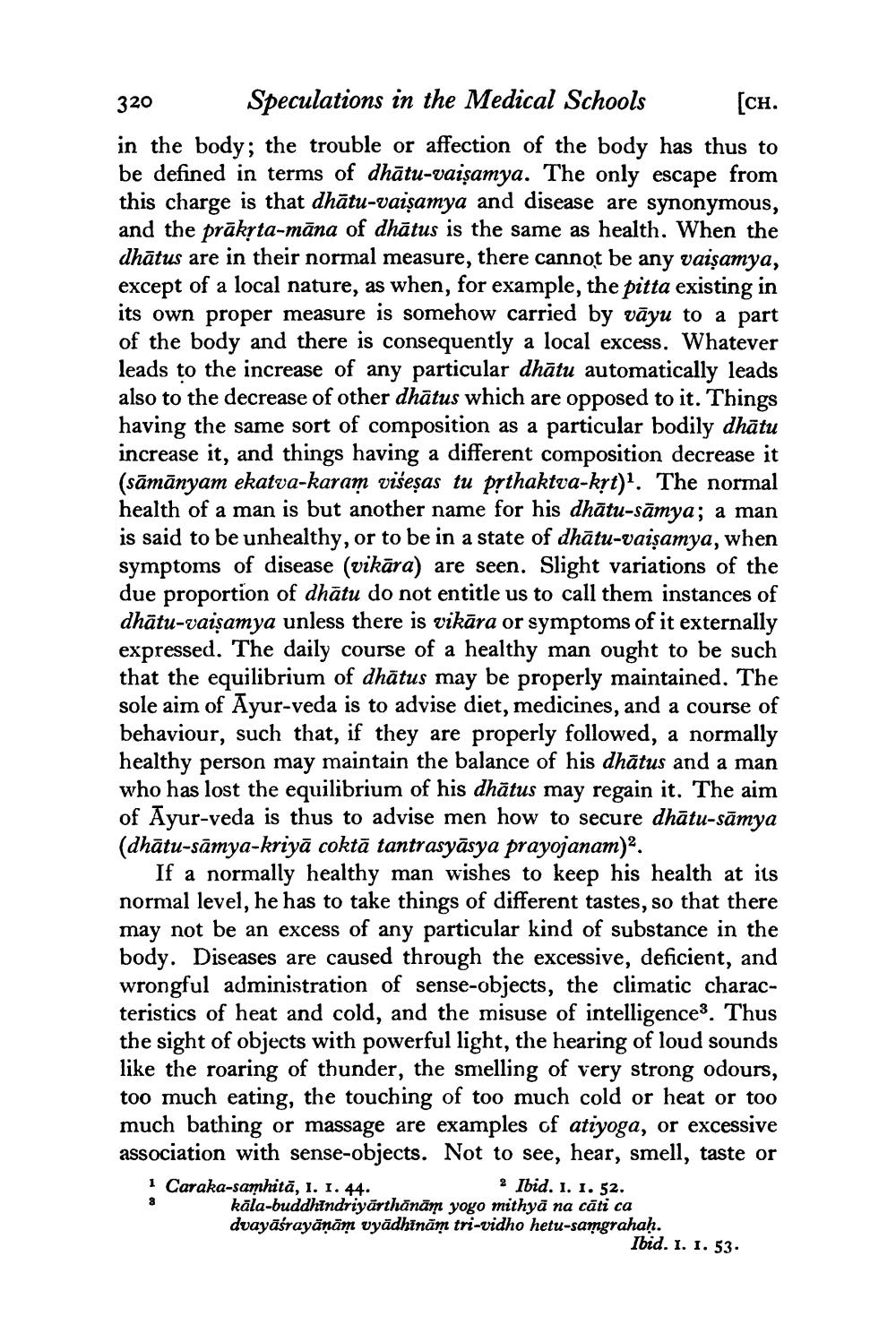________________
320
Speculations in the Medical Schools
[CH.
in the body; the trouble or affection of the body has thus to be defined in terms of dhātu-vaiṣamya. The only escape from this charge is that dhātu-vaiṣamya and disease are synonymous, and the prākṛta-māna of dhātus is the same as health. When the dhātus are in their normal measure, there cannot be any vaiṣamya, except of a local nature, as when, for example, the pitta existing in its own proper measure is somehow carried by vayu to a part of the body and there is consequently a local excess. Whatever leads to the increase of any particular dhātu automatically leads also to the decrease of other dhatus which are opposed to it. Things having the same sort of composition as a particular bodily dhatu increase it, and things having a different composition decrease it (sāmānyam ekatva-karam višeṣas tu pṛthaktva-kṛt)1. The normal health of a man is but another name for his dhātu-samya; a man is said to be unhealthy, or to be in a state of dhātu-vaiṣamya, when symptoms of disease (vikāra) are seen. Slight variations of the due proportion of dhātu do not entitle us to call them instances of dhātu-vaiṣamya unless there is vikāra or symptoms of it externally expressed. The daily course of a healthy man ought to be such that the equilibrium of dhātus may be properly maintained. The sole aim of Ayur-veda is to advise diet, medicines, and a course of behaviour, such that, if they are properly followed, a normally healthy person may maintain the balance of his dhatus and a man who has lost the equilibrium of his dhātus may regain it. The aim of Ayur-veda is thus to advise men how to secure dhātu-samya (dhātu-sāmya-kriyā coktā tantrasyāsya prayojanam)2.
If a normally healthy man wishes to keep his health at its normal level, he has to take things of different tastes, so that there may not be an excess of any particular kind of substance in the body. Diseases are caused through the excessive, deficient, and wrongful administration of sense-objects, the climatic characteristics of heat and cold, and the misuse of intelligence3. Thus the sight of objects with powerful light, the hearing of loud sounds like the roaring of thunder, the smelling of very strong odours, too much eating, the touching of too much cold or heat or too much bathing or massage are examples of atiyoga, or excessive association with sense-objects. Not to see, hear, smell, taste or 1 Caraka-samhită, 1. 1. 44.
2 Ibid. 1. 1. 52.
8
kala-buddhindriyārthānām yogo mithya na cati ca dvayāśrayāṇām vyādhīnām tri-vidho hetu-samgrahaḥ.
Ibid. 1. 1. 53.




